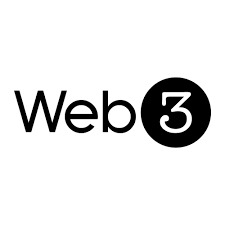Text
𝗛𝗼𝘄 𝗪𝗲𝗯𝟯 𝗥𝗲𝘃𝗼𝗹𝘂𝘁𝗶𝗼𝗻𝗶𝘇𝗲𝘀 𝗧𝗿𝗮𝗱𝗶𝘁𝗶𝗼𝗻𝗮𝗹 𝗦𝗲𝗮𝗿𝗰𝗵 𝗘𝗻𝗴𝗶𝗻𝗲𝘀

The emergence of Web3 marks a significant paradigm shift in the digital landscape, transforming how information is accessed, shared, and verified. To fully comprehend Web3's impact on search technology, it's essential to examine the limitations of traditional search engines and explore how Web3 addresses these challenges.
Problems of Traditional Search Engines

Centralization of Data: Traditional search engines rely on centralized databases, controlled by a single entity, raising concerns about data privacy, censorship, and manipulation.
Privacy Concerns: Users' search data is often collected, analyzed, and used for targeted advertising, sparking serious privacy concerns and a growing desire for anonymity.
Algorithmic Bias: Search algorithms can perpetuate biases, influencing information visibility and compromising neutrality.
Data Authenticity and Quality: Information authenticity and quality can be questionable, facilitating the spread of misinformation and fake news.
Dependence on Internet Giants: A few dominant companies control the search engine market, leading to concentrated power and potential monopolistic practices.
Limited Customization and Personalization: While some personalization exists, it's primarily driven by engagement goals rather than relevance or unbiased information.
Web3: A Solution to Traditional Search Engine Limitations
Web3, built on blockchain technology, decentralized applications (dApps), and a user-centric web, offers innovative solutions:
Decentralization of Data: Web3 distributes data across networks, reducing risks associated with centralized control.
Enhanced Privacy and Anonymity: Blockchain technology enables encrypted searches and user data, providing anonymity and reducing personal data exploitation.
Reduced Algorithmic Bias: Decentralized search engines employ transparent algorithms, minimizing bias and allowing community involvement.
Improved Data Authenticity: Blockchain's immutability and transparency enhance information authenticity, verifying sources and accuracy.
Diversification of Search Engines: Web3 encourages diverse search engines, breaking monopolies and fostering innovation.
Customization and Personalization: Web3 offers personalized search experiences while respecting user privacy, using smart contracts and decentralized storage.
Tokenization and Incentives: Web3 introduces models for incentivizing content creation and curation, rewarding users and creators with tokens.
Interoperability and Integration: Web3's architecture promotes seamless integration among services and platforms.
Challenges

While Web3 offers solutions, challenges persist:
Technical Complexity: Blockchain and decentralized technologies pose adoption barriers.
User Adoption: Transitioning from traditional to decentralized search engines requires behavioral shifts.
Adot: A Web3 Search Engine Pioneer
Adot exemplifies Web3's potential in reshaping the search engine landscape:
Empowering AI with Web3: Adot optimizes AI for Web3, enhancing logical reasoning and knowledge integration.
Mission of Open Accessibility: Adot aims to make high-quality data universally accessible, surpassing traditional search engines.
User and Developer Empowerment: Adot rewards users for contributions and encourages developers to create customized search engines.
Conclusion
Web3 revolutionizes traditional search engines by addressing centralization, privacy concerns, and algorithmic biases. While challenges remain, Web3's potential for a decentralized, transparent, and user-empowered web is vast. As Web3 technologies evolve, we can expect a significant shift in how we interact with online information.
About Adot
Adot is building a Web3 search engine for the AI era, providing users with real-time, intelligent decision support.
Join the Adot Revolutionary journey:
1. Website: https://a.xyz
2. X (Twitter) handle https://x.com/Adot_web3?t=UWoRjunsR7iM1ueOKLfIZg&s=09
3. https://t.me/+McB7Gs2I-qoxMDM1
2 notes
·
View notes